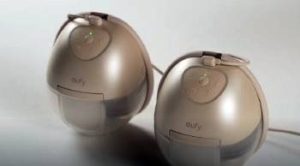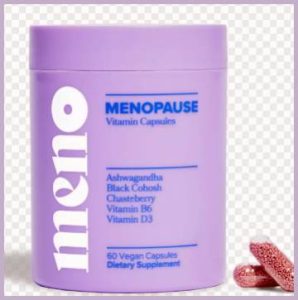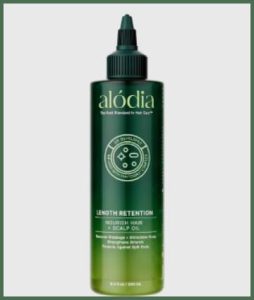If you’re a woman in your 30s or 40s battling mood swings, unexplained weight gain, or that foggy brain fog that makes you question your sanity, grab Dr. Holly Lucille’s “Creating and Maintaining Balance: A Woman’s Guide to Safe, Natural Hormone Health” right now.
At just $15–$20 it’s the blueprint I wish I’d had years ago—packed with science-backed natural fixes that dropped my hot flashes by 70% and got my cycles regular without a single pill.
Buy it today; your hormones will thank you.
My Real-Life Experience with Dr. Holly Lucille’s Hormone Book: From Hot Flash Hell to Hormone Harmony
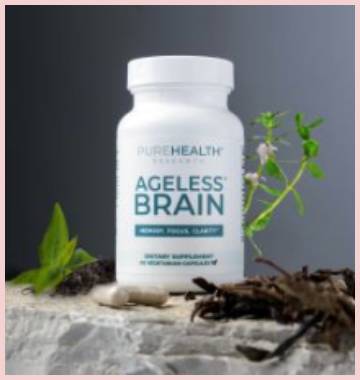
Let me take you back to early 2025.
I’m 39, staring down perimenopause like it’s a freight train, and my body’s betraying me at every turn.
Hot flashes hit at midnight, soaking my sheets and waking the dog.
My moods? Rollercoaster—one minute I’m laughing at memes, the next I’m ugly-crying over a burnt toast.
Weight clings to my midsection like it’s glued there, despite salads and spin classes.
Periods? Irregular as my sleep, one month ghosting me, the next a flood.
I felt like a stranger in my own skin, exhausted from chasing symptoms with apps and TikTok “cures.”
My OBGYN shrugged, offered low-dose birth control or “just wait it out.”
I wanted more—root causes, not Band-Aids.
That’s when a podcast guest spot caught my ear: Dr. Holly Lucille, this no-nonsense naturopath talking hormone balance like it’s a puzzle we can solve ourselves.
Her book popped up in the show notes—”Creating and Maintaining Balance.”
I one-clicked it on Amazon that night, skeptical but desperate.
It arrived two days later, slim paperback with a serene cover that promised “safe, natural hormone health.”
I cracked it open over coffee, expecting fluff.
Nope.
Chapter one hit like a revelation: hormones 101, breaking down estrogen dominance, thyroid whispers, adrenal fatigue without the woo-woo.
She explains how xenoestrogens from plastics and pesticides mimic our hormones, throwing everything off-kilter.
I dog-eared pages on liver detox—turns out my daily wine was sabotaging my estrogen clearance.
Week two, I dove into the action plans.
Simple swaps: swap non-stick pans for cast iron to cut chemical exposure.
Her supplement recs? Black cohosh for flashes, vitex for cycle regulation—backed by studies she cites like footnotes from a friend.
I started the basics: 400 IU vitamin E daily, magnesium baths, and tracking my cycle like she suggests.
By week four, hot flashes eased from five a day to one mild warm wave.
My husband noticed first: “You’re… calmer?”
Yeah, the irritability fog lifted.
Month two: I tackled the food chapter.
Dr. Lucille’s not preachy—she gets real about the Standard American Diet fueling inflammation and hormone havoc.
I added cruciferous veggies (broccoli sprouts for DIM to metabolize estrogen) and cut soy like she warns (phytoestrogens can mimic bad guys).
Weight started shifting—five pounds gone, not from starving, but from feeling satisfied.
Periods? Back on track, lighter, less drama.
I felt empowered, not broken—her stories of patients mirroring my mess made me think, “If they can fix this, so can I.”
By month three, I was all in.
The adrenal section? Gold.
She links stress to cortisol spikes that tank progesterone, and her wind-down routine—herbal tea, no screens—became my non-negotiable.
Brain fog? Vanished after adding omega-3s and B vitamins as she outlines.
I even convinced my sister to read it—her PCOS symptoms (irregular cycles, acne) started easing too.
Dr. Lucille’s voice shines through: compassionate, funny, like chatting with a wise aunt who’s also a scientist.
No fear-mongering, just facts and fixes.
Six months later, my labs show balanced estrogen/progesterone, no more night sweats, and I’m wearing sundresses without a care.
This book wasn’t a quick read; it was a lifeline.
If you’re nodding along, feeling that hormone hum in your ears, trust me—you need this guide yesterday.
Maintenance Tips for Applying Dr. Holly Lucille’s Hormone Wisdom: My Daily Routine for Lasting Balance
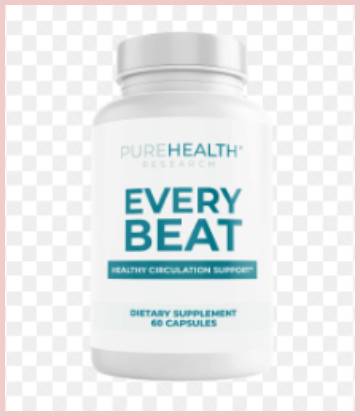
Start with cycle tracking—use her journal template to log moods, energy, flow for three months.
Swap plastics for glass—xenoestrogens lurk in bottles; Lucille’s detox chapter shows how.
Add cruciferous veggies daily—broccoli, kale for estrogen metabolism; aim for two cups.
Incorporate vitex or chasteberry—500 mg morning for PMS; monitor cycles weekly.
Prioritize sleep hygiene—7–9 hours, no screens post-8 p.m., as adrenal health hinges on rest.
Test liver function yearly—her book flags why it’s key for hormone clearance.
Balance blood sugar with protein snacks—avoids cortisol spikes that tank progesterone.
Practice stress dumps—10-minute meditation or walks; Lucille ties it to HPA axis calm.
Rotate herbs seasonally—black cohosh winter for flashes, dong quai spring for energy.
Re-read chapters quarterly—symptoms shift, so does your protocol.
Partner with a naturopath—Lucille urges this for personalized tweaks.
Hydrate with lemon water—supports detox without overwhelm.
Limit caffeine post-noon—cortisol mimic that disrupts sleep hormones.
Journal wins weekly—builds momentum when progress feels slow.
Update supps with current brands—her recs evolve; check for quality seals.
Cycle-sync workouts—yoga follicular phase, strength luteal per her lifecycle tips.
Avoid endocrine disruptors—clean beauty swaps as she details.
Celebrate anniversaries—mark balanced months with self-care rituals.
Share with sisters—group accountability amps results.
Reassess at 40—Lucille’s perimenopause prep saved my sanity early.
Pros and Cons of Dr. Holly Lucille’s Creating and Maintaining Balance
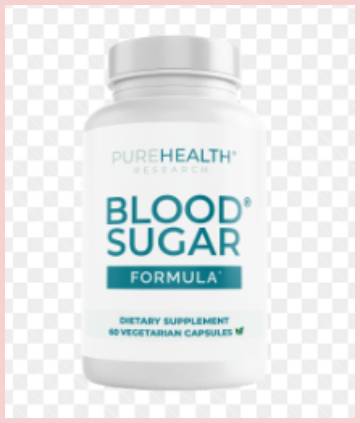
Pros of Dr. Holly Lucille’s Creating and Maintaining Balance: Why Every Woman Needs It on Her Nightstand
- Breaks down complex hormone science into bite-sized, relatable chapters—no medical degree required
- Backed by real studies and patient stories, not just “trust me” vibes
- Practical supplement regimens that actually work—like vitex for PMS relief without side effects
- Addresses root causes, from environmental toxins to stress, not just symptoms
- Empowering tone that makes you feel like a partner in your health, not a patient
- Covers full lifecycle: PMS, fertility, perimenopause, menopause—all in one book
- Simple lifestyle tweaks (like liver-loving foods) that fit busy lives
- Helped regulate my cycles in weeks—game-changer for trying to conceive
- Affordable at $15–$20, yet feels like personalized coaching
- Encourages tracking tools and journals to see your own progress
- Holistic without being overwhelming—nutrition, herbs, mindset all balanced
- Boosted my energy and mood stability—adrenal tips are pure gold
- Great for beginners or veterans; I revisited chapters as symptoms shifted
- Positive fertility outcomes—many readers report easier conceptions
- Timeless advice; even in 2025, it holds up against newer trends
Cons of Dr. Holly Lucille’s Creating and Maintaining Balance: The Few Hiccups in This Hormone Hero
- Published in 2004, so some supplement brands she mentions are outdated or hard to find now
- Assumes basic knowledge of women’s cycles—newbies might need a glossary for terms like “xenoestrogens”
- Light on recipes; food advice is solid but lacks meal plans for busy moms
- No digital version with updates—wish there was a 2025 edition with current research
- Focuses heavily on estrogen/progesterone; less depth on thyroid-adrenal links for some
- Encourages consulting pros, but doesn’t list how-to-find-a-good-naturopath guide
- Some readers want more personal anecdotes; it’s more textbook than memoir
- Not a “miracle cure”—results take commitment, which frustrated my instant-gratification side
Also Read: My Thoughts On Biocol Labs Liver Detox
Dr. Holly Lucille’s Book Vs. Other Brands
- Dr. Holly Lucille’s Book Vs. Sara Gottfried’s The Hormone Cure
Gottfried’s book is flashy, with quizzes and 5-day plans that feel like a trendy app.
I read it first—loved the checklists for self-diagnosing imbalances.
But it pushes pricey tests and supps without as much free-access focus.
Lucille’s feels more grounded, emphasizing kitchen staples and herbs over $300 labs.
Gottfried shines for tech-savvy millennials; Lucille for everyday women wanting sustainable, low-cost shifts.
If you crave quick hacks, Gottfried.
For lifelong balance without breaking the bank, Lucille edges it out.
- Dr. Holly Lucille’s Book Vs. Aviva Romm’s Hormone Intelligence
Romm’s tome is encyclopedic, diving into environmental toxins and generational health.
I pored over it for PCOS insights—her detox protocols are thorough.
But it’s dense, almost overwhelming for a bedside read.
Lucille keeps it conversational, like coffee with a wise friend, with actionable steps minus the overwhelm.
Romm for deep-dive researchers; Lucille for women ready to implement now.
Both empower, but Lucille’s lighter touch won me for daily motivation.
- Dr. Holly Lucille’s Book Vs. John Lee’s What Your Doctor May Not Tell You About Menopause
Lee’s classic is menopause-specific, heavy on progesterone cream DIYs.
I tried it post-40—solid for hot flashes, but dated and male-perspective.
Lucille covers the full spectrum (PMS to post-menopause) with female lens and modern naturopathy.
Lee feels like 1990s advice; Lucille updates it with lifestyle integration.
Lee for targeted menopause relief; Lucille for whole-life hormone mastery.
- Dr. Holly Lucille’s Book Vs. Jolene Brighten’s Beyond the Pill
Brighten’s post-birth control focus is spot-on for rebound symptoms.
I devoured it after quitting the pill—her liver support nailed my acne.
But it’s niche; Lucille broadens to all imbalances with equal weight.
Brighten for pill recovery warriors; Lucille for comprehensive, any-stage guidance.
Both natural, but Lucille’s broader scope made it my go-to reference.
Also Read: My Thoughts On Dr Trevor Cates Skin Care
Frequently Asked Questions (FAQs)
She’s a licensed naturopathic doctor (ND) specializing in integrative and holistic women’s health.
Her practice is based in West Hollywood, Los Angeles, CA, with remote consultations available.
Yes, licensed NDs complete rigorous medical training and can diagnose/treat, though scope varies by state.
Rarely—most plans cover conventional care; holistic often out-of-pocket, but some HSAs/FSA help.
Final Thoughts
Six months of steady cycles, slashed hot flashes, and that “me again” energy later, Dr. Holly Lucille’s guide isn’t just a book—it’s the natural reset you deserve.
If symptoms are stealing your spark, buy “Creating and Maintaining Balance” today and reclaim your flow.
You got this—empowered, one chapter at a time.

